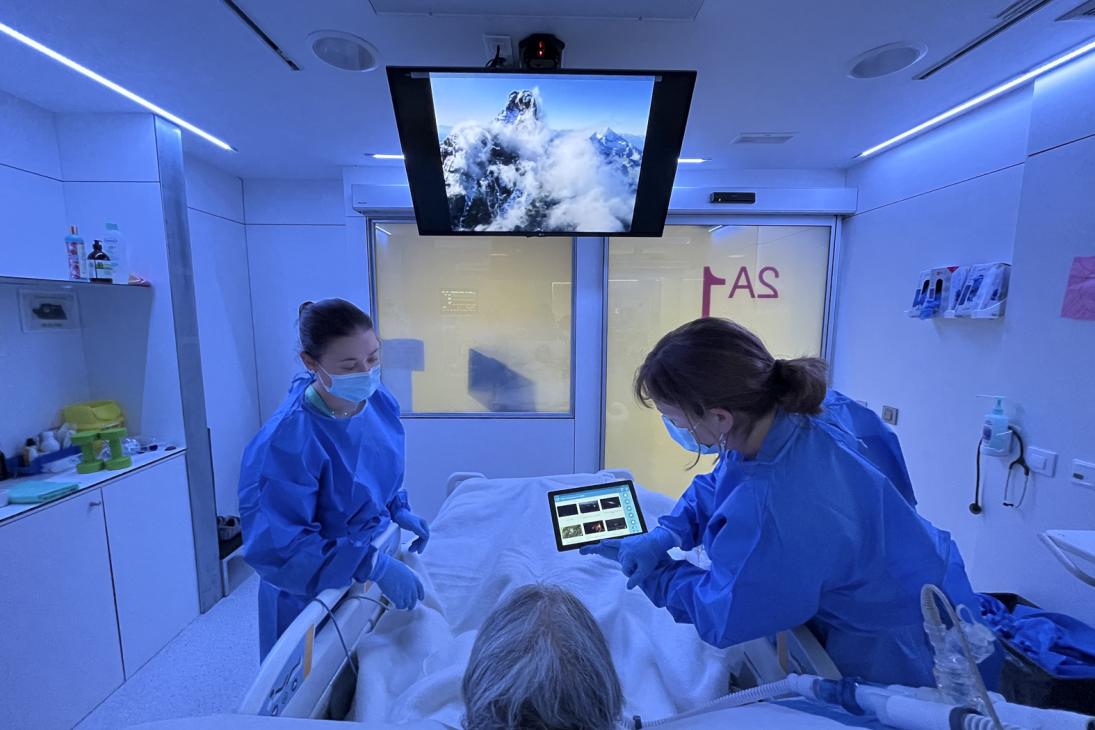The Bellvitge University Hospital has been immersed since 2021 in a process of improving the patient experience. Through a series of initiatives and projects, the hospital aims to optimize the well-being and satisfaction of its users.
Highlighted initiatives to improve the patient experience:
- Measuring the satisfaction level of our users
- Patient Experience Projects
- Volunteer Program
- Therapeutic folders to enhance the hospital stay
- Book exchange space in waiting rooms
Some of the projects carried out so far:
- Night rest improvement project
- PET-MRI Project
- Improvement of the design of care and outdoor spaces, themed around the Delta del Llobregat
- Improvement of the Emergency Department
- Improvement of the Hospital's signage
- Transformation of the 64 boxes in the Intensive Care Unit with sensory elements
- Focus groups to validate the comprehensibility of informational documents intended for patients.
Initiatives
Measure the degree of satisfaction
of our users
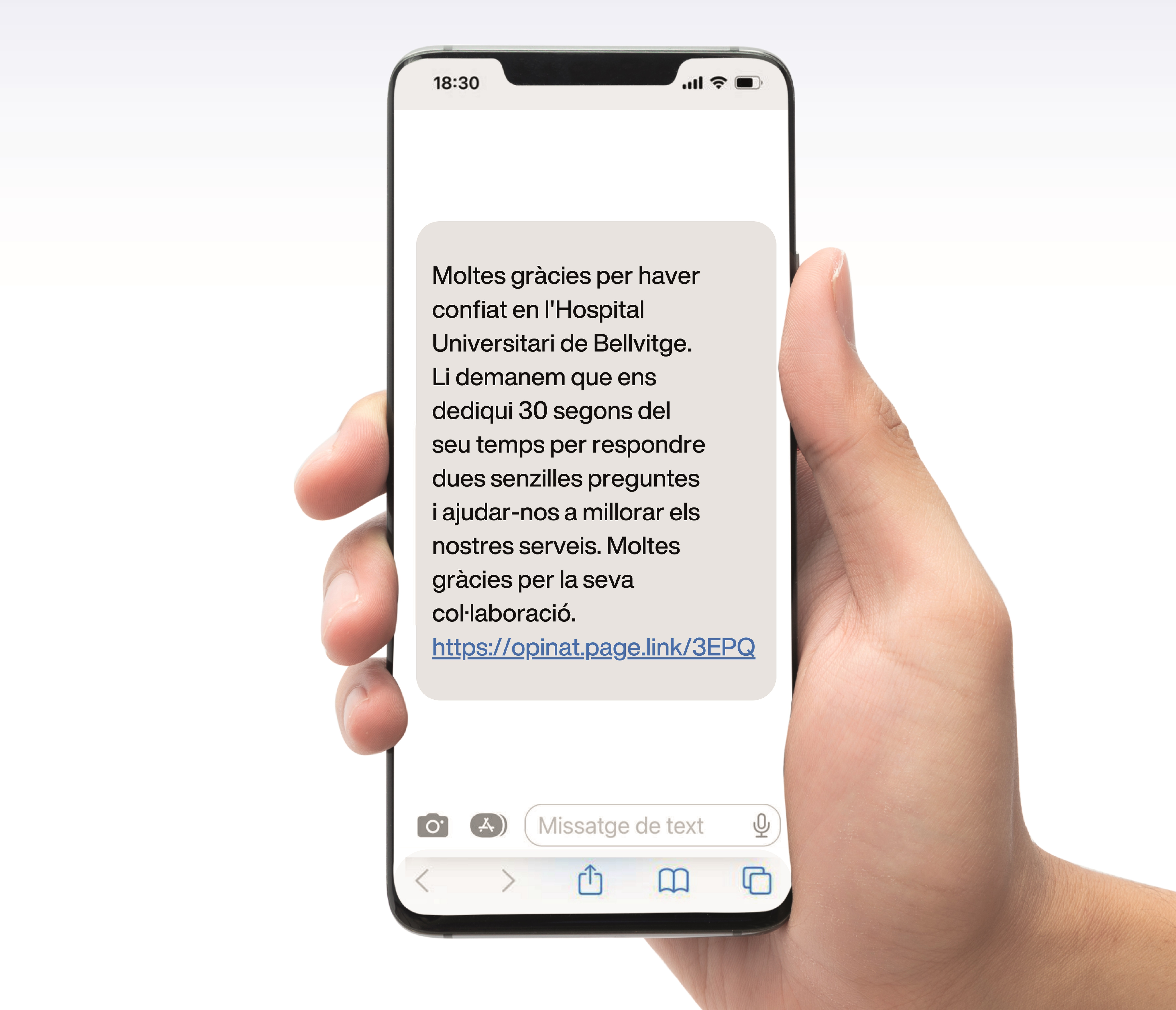
Since December 2023, we have implemented a system to measure user satisfaction with our services, known as NPS (Net Promoter Score). This system is based on a single question: "In case of need, to what extent would you recommend the HUB to your family or friends?" Users are asked to rate their response on a scale from 0 to 10, where 0 means "Very unlikely" and 10 means "I would definitely recommend it." Once they have answered this question, they are asked to explain the reason for their response.
The answers help ensure that the organization's management is more patient-focused and enable strategic decisions to be made based on user experience. This indicator is complemented by other active listening methods, such as claims, suggestions, thanks and PLAENSA surveys.
Patient Experience (XPA)
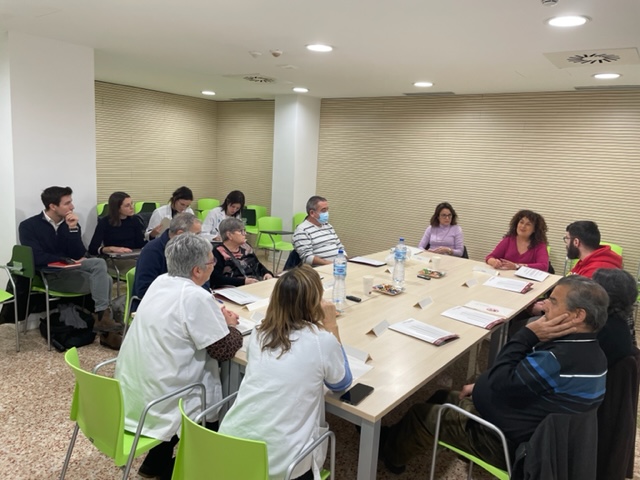
At the Hospital de Bellvitge, we have incorporated the patient experience into the organization’s culture, so that patients and their families or caregivers can tell us what they need and what they would like to receive during their stay at the hospital. The perception of quality and value is defined by the people who receive the service; therefore, it is necessary to innovate and design services based on the needs and expectations of patients and their families or caregivers.
We do this through various quantitative and qualitative methodologies: surveys, focus groups, interviews, shadowing (observation), and Design Thinking (creative thinking).
Volunteer Program
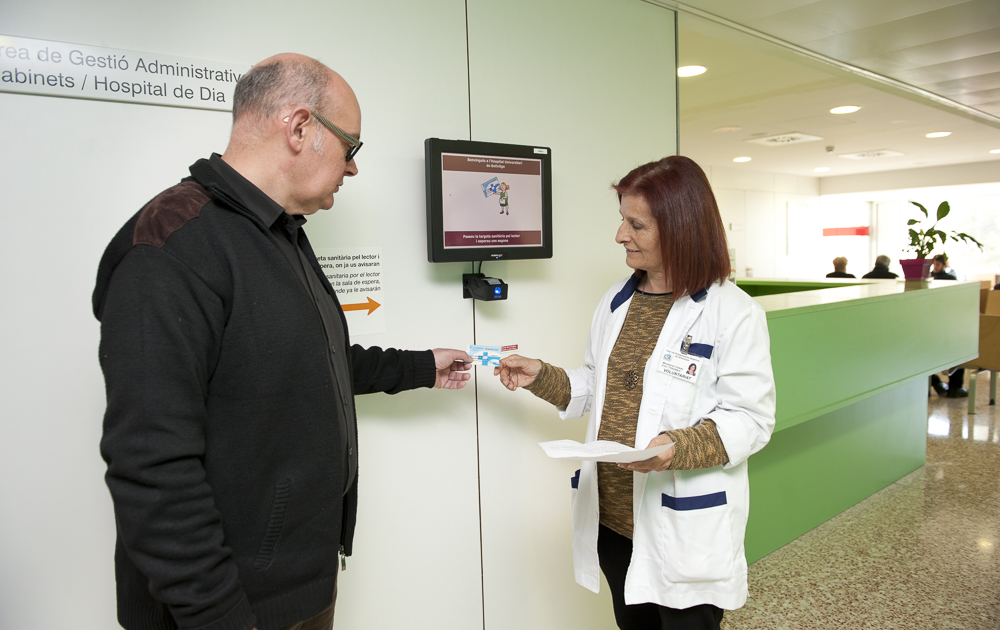
Bellvitge Hospital launched the Social Volunteering Program years ago, which brings together volunteers who carry out social tasks and provide care for hospitalized patients and their families (support, companionship, assistance, etc.), as well as managing the library service for patients.
This Volunteering Program is coordinated by the Citizen Attention and Participation Unit.
Therapeutic Folders
to improve hospital stay
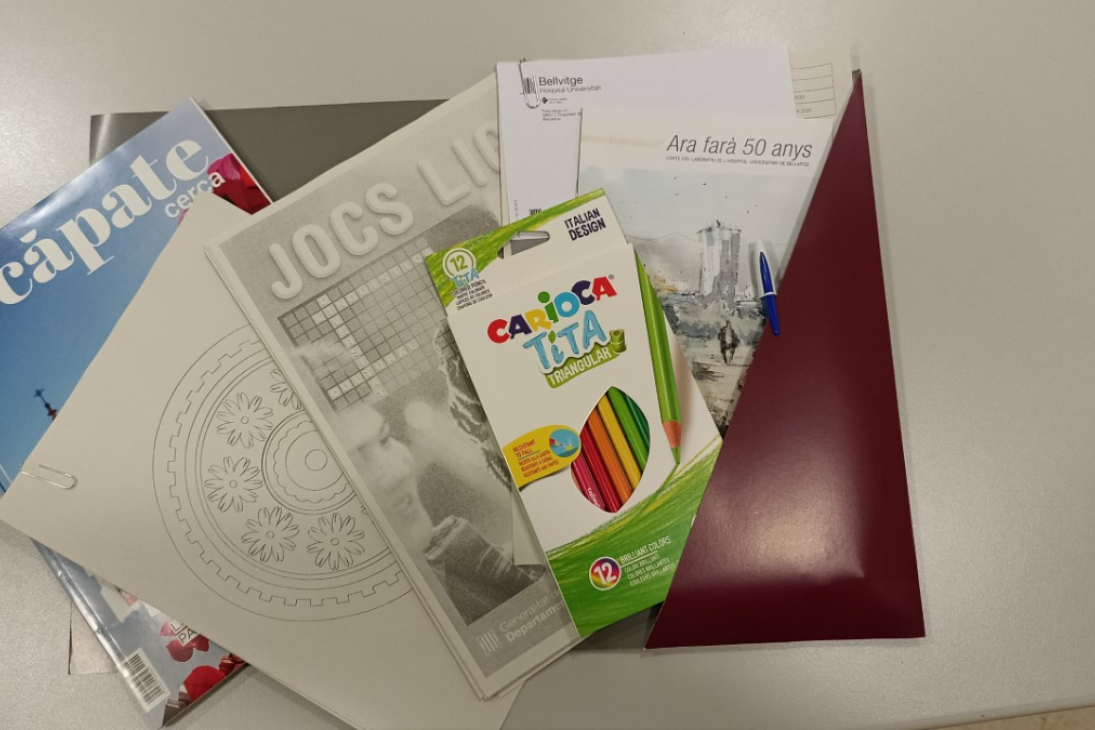
The project was created with the aim of making hospital stays more enjoyable through the distribution of these therapeutic folders, which include reading materials, games, crossword puzzles, colouring mandalas, and other entertainment documents.
The folders are prepared and provided by the Citizenship and Participation Care Unit, at the request of the professionals, when they detect that an admitted person can be useful to improve their stay in the hospital.
Book Exchange Spaces
The project was created with the goal of improving the hospital stay for outpatients and their families or companions by providing them with books and magazines that they can read during their stay. In addition to reading in the waiting rooms, users can take the books home and return them during their next visit using trays located in the new reading areas.
Furthermore, users can also bring books from home and add them to the reading points so that others can enjoy them.
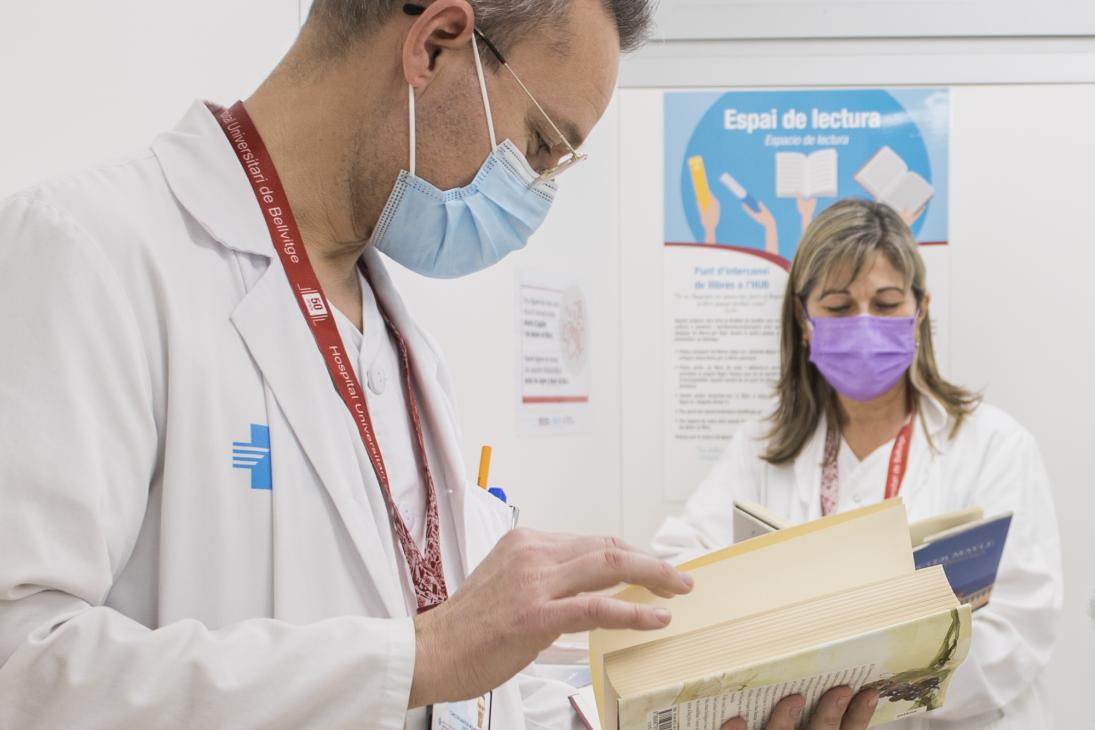
Projects carried out
The hospital is sleeping
"The hospital is sleeping" is the project of Hospital de Bellvitge that ensures the nighttime rest of hospitalized patients. According to the World Health Organization (WHO), a good night's rest has a direct impact on health. In fact, studies confirm that factors disrupting the sleep of hospitalized patients include nighttime interruptions due to required patient care, noise from medical devices, room temperature, excessive lighting, noise from other patients, or external causes related to hospital staff.
With the aim of improving these aspects that hinder the recovery of hospitalized individuals, the Nursing Directorate of HUB has worked with a patient experience perspective.
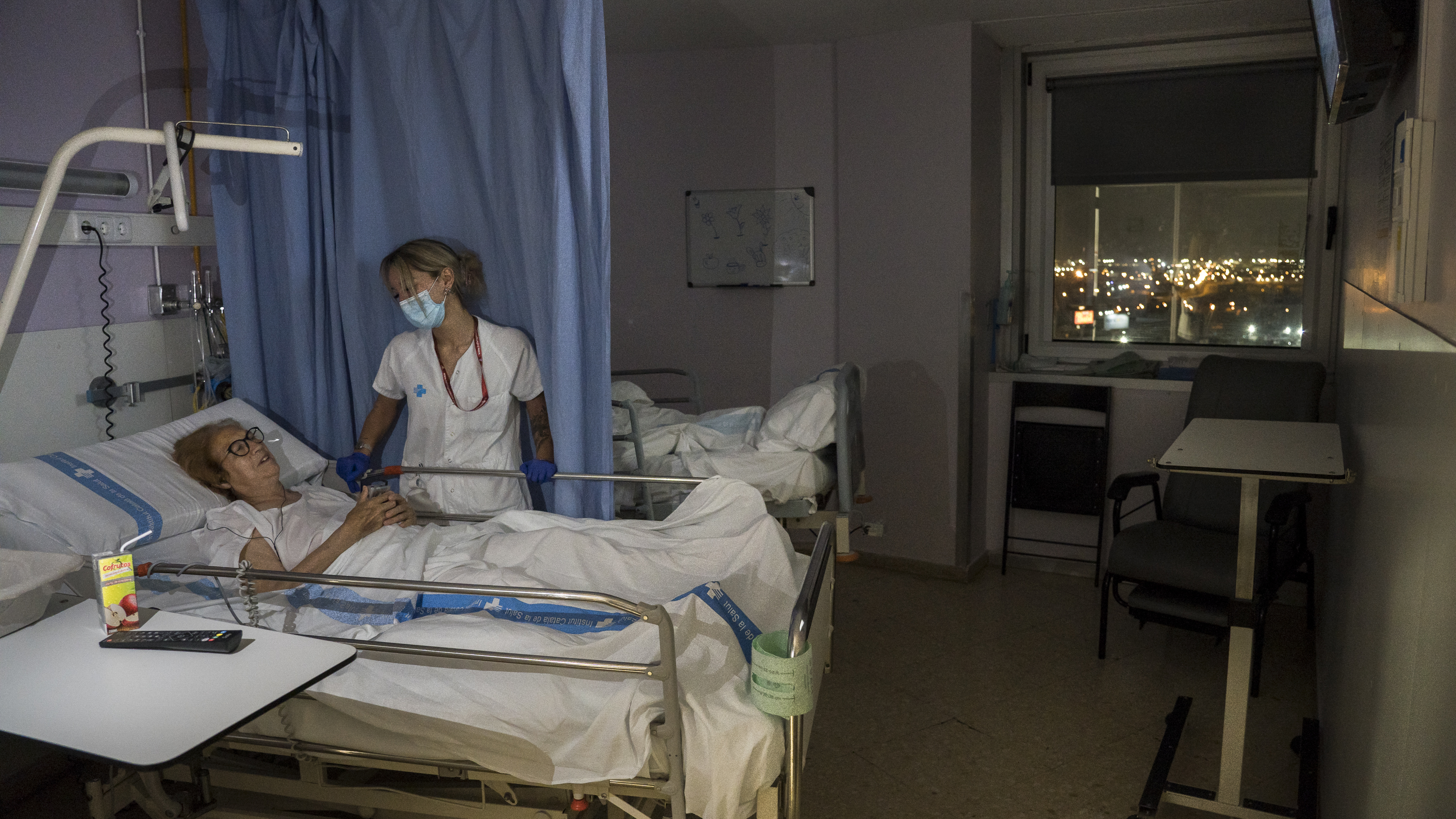
Improvement of the design of spaces
with elements of the environment close to the hospital
The Bellvitge University Hospital has launched a signage and space adaptation project that incorporates the integration of design elements evoking iconic buildings, fauna, flora, and landscapes from the Parc Natural Delta del Llobregat.
The project's goal is to enhance the care environment and patient experience by incorporating various elements that, through colours and themes, aid in navigation within the hospital while also providing interesting facts and information about the surrounding environment.
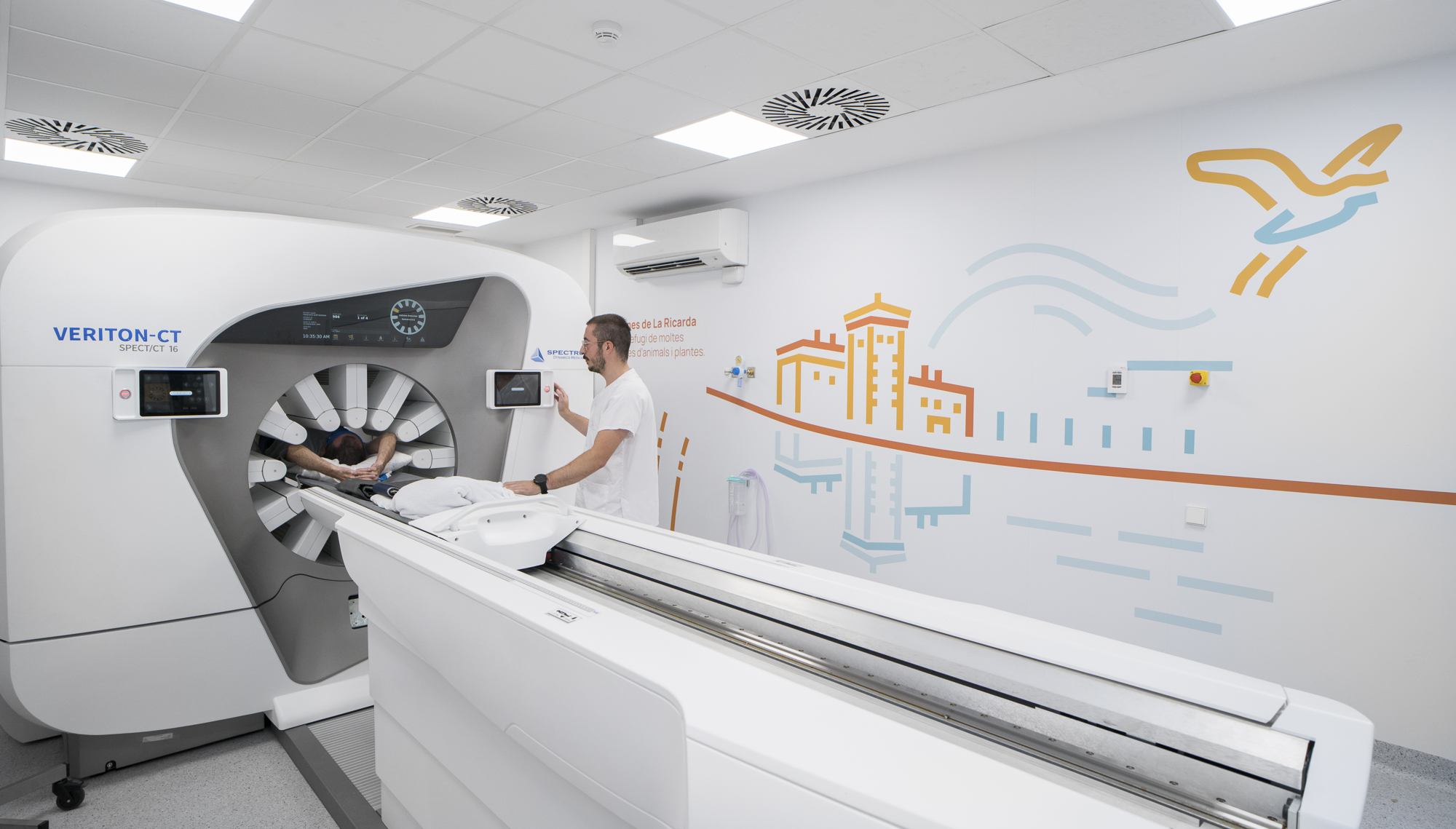
Transformation of the Intensive Care Unit with sensory elements
According to scientific literature, between 30% and 50% of patients admitted to an Intensive Care Unit develop post-ICU syndrome: this refers to a set of physical, cognitive, and emotional symptoms caused by the hospital stay, which leads to a significant deterioration in quality of life after discharge.
To alleviate this, the Bellvitge University Hospital (HUB) has transformed the 64 rooms in its Intensive Care Unit (ICU) by incorporating sensory elements—lights, projections, sounds, and vibrations—with the aim of achieving both functional and cognitive rehabilitation for the patient.
